Originally published by Stylist UK on October 8, 2019 by the Stylist Team for Life.
10 Stylist cover stars including Sophia the Robot, Fearne Cotton, Lauren Laverne and Nadiya Hussain reflect on what they’ve learnt over the past decade.
NIGELLA LAWSON
The food writer has graced Stylist’s cover four times over the past decade, but her appearance in 2011, face drenched in her favourite salted caramel, was one of our most iconic (and stickiest) moments.
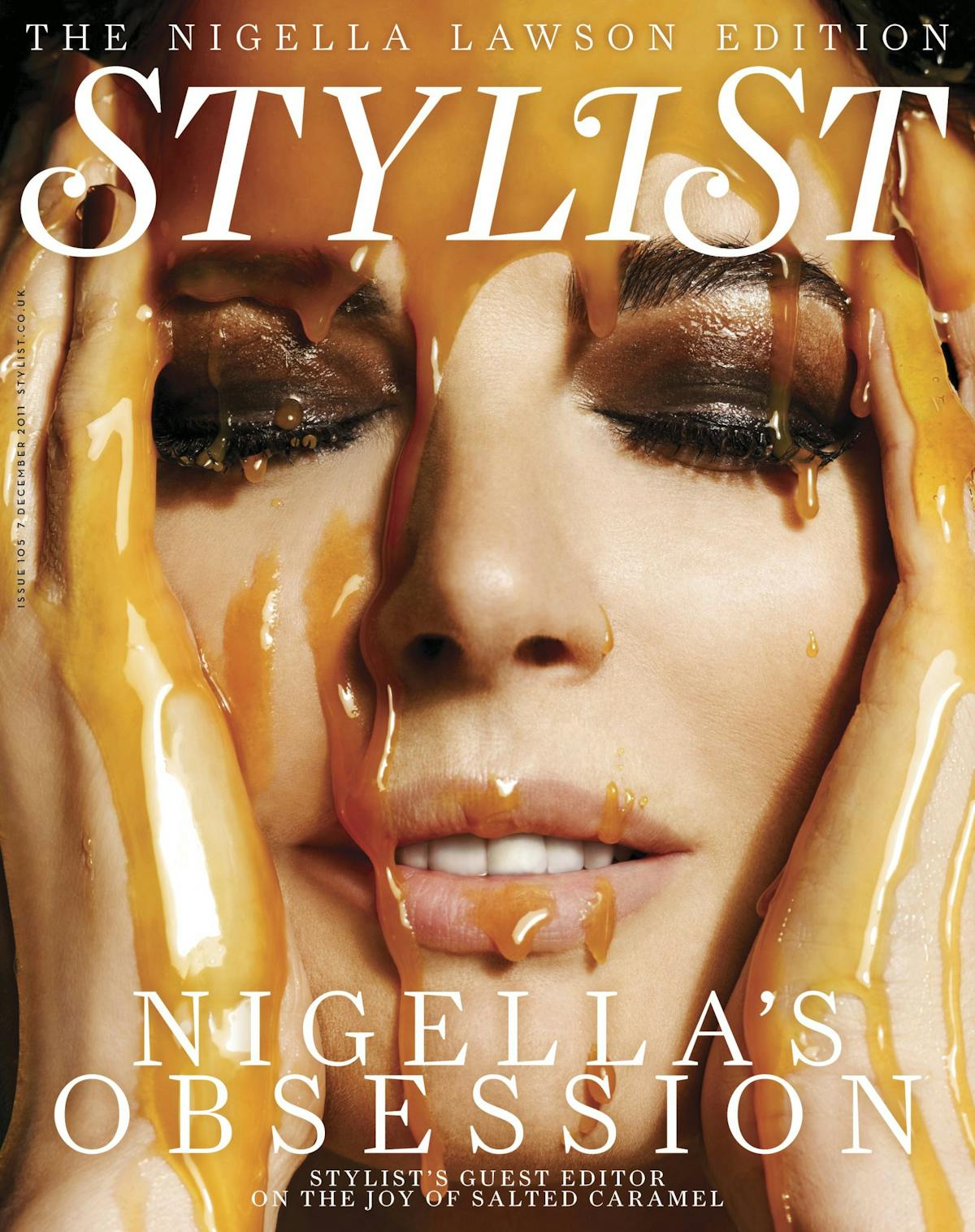
Unlike Stylist, which has 10 years of youthful life behind it, my last decade has covered the age at which I am meant to have accrued wisdom, which I should be ready to dispense with kindly generosity. But I am afraid to say that the most important thing I have learnt over the last 10 years is how to poach an egg.
I am understandably a little embarrassed to have no more significant achievement to claim for myself or to share with you. However, it is not – for me, at least – entirely insignificant. I have always held that what is true in the kitchen is true out of the kitchen, and if it has taken me so long to accomplish something so basic, I have learnt over the years that avoiding something you fear doesn’t make you less afraid, but merely allows the fear to grow apace until it is paralysing.
And I was frightened of poaching an egg. As a food writer, I knew it was rather shameful to be defeated by such an elementary culinary procedure. And although I didn’t hide from admitting it, but rather declared it noisily, therein lies the problem. Shame is crippling, casting a toxic pall over anywhere, anything, it is felt. I may have denied feeling shame, but it corroded my confidence all the same. And so I decided to act, to feel the fear and cook it anyway. And what I learnt was that it is indeed easy to poach an egg – which doesn’t diminish my sense of quiet achievement every time I do it – and that by managing something that I had been avoiding, I realised how many self-defeating limitations we impose upon ourselves, and how liberating it is to refuse to be thus constrained. Wisdom doesn’t lie just in big abstract truths, but in the small acts that make up our everyday life.
And while I do feel there is indeed symbolic value in this essentially little lesson, it would be pointless not to share the purely practical act.
Initially, I practised a counsel of perfection, straining the egg through a fine tea strainer to remove the liquid part of the egg white, which is the bit that turns to fluff in the saucepan. I now, as I make my breakfast everyday, adopt a less finickity procedure. So: crack a fridge-cold egg (the fresher and colder it is, the better it will hold its shape as the white is more compact) into a cup and add a teaspoon of vinegar or lemon juice, then let it stand while a small pan of water comes to a boil.
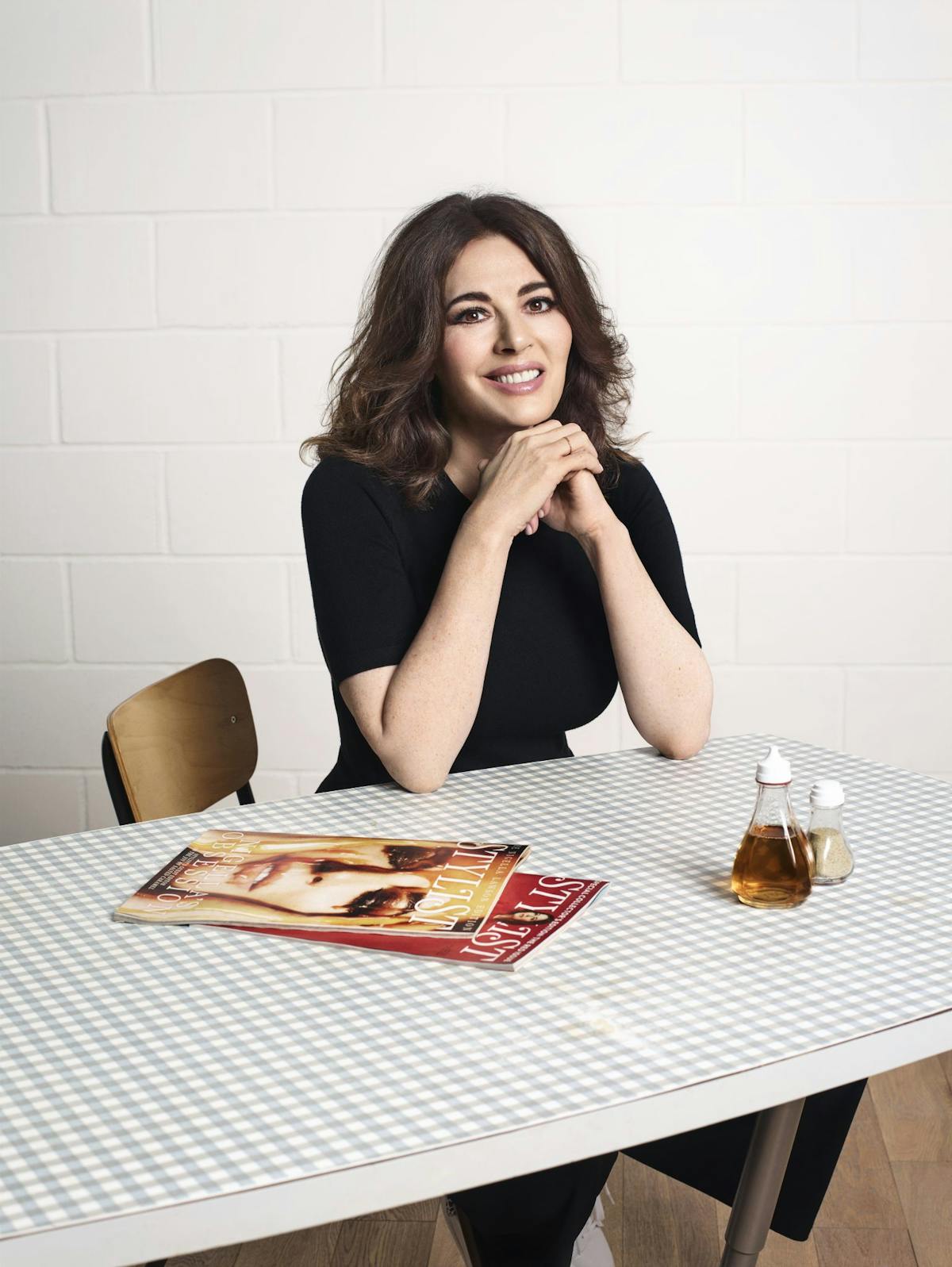
Turn off the heat, though leave the pan where it is, and then slowly pour the egg in from the cup, leaving the watery liquid that has collected in the bottom of the cup behind. (Should you be poaching more than one egg, you might want to leave the water on a very, very low heat, but don’t let any bubbles come to the surface.) If you want, you can encourage the edges of the white to curl up over the yolk with a slotted spoon, though you don’t have to. Leave it in the water for four to five minutes depending on the size of the egg, and remove with your slotted spoon, letting any water clinging to it drop off before you transfer it quaveringly to your buttered toast.
You may have your own method already, and don’t need my encouragement. But for those of you who have shared my fears, or my incompetence – however you want to describe it – let me tell you that it is no small matter to begin your day knowing you have achieved something that seemed impossible for so long. It is, in its own way, a quiet triumph.
FEARNE COTTON
In 2017, the broadcaster and founder of the Happy Place podcast helped Stylist celebrate the connection between creativity and mental health in the most unique way.
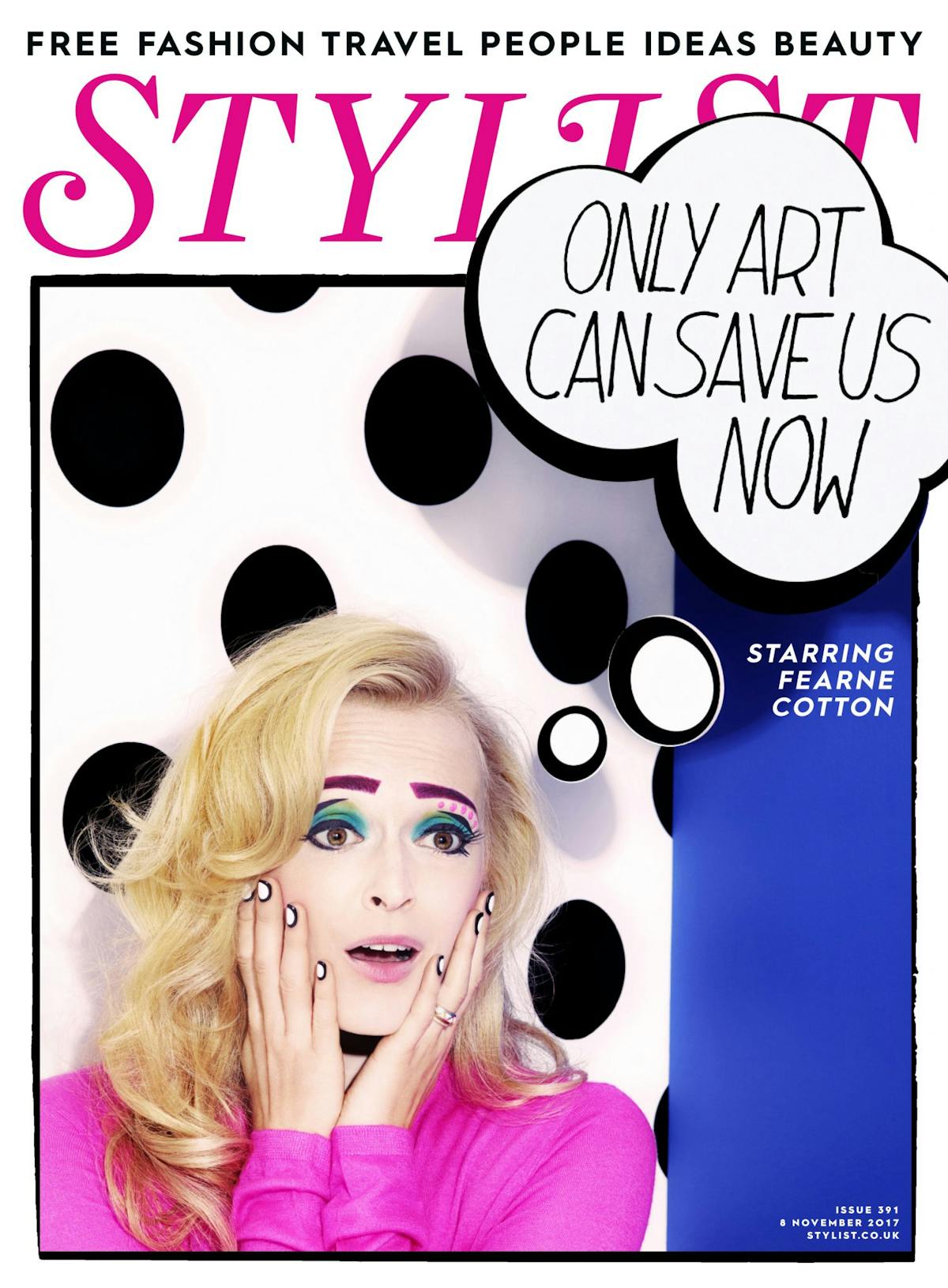
The last decade has been full of learnings about myself, about what happiness means – for me, it’s identifying what makes me unhappy, and trying not to fail rather than chasing happiness – and simplifying my life. But one of the most vital things I’ve learnt is how to have boundaries, to let people know what I’m comfortable with and what my limits are both personally and professionally. And, crucially, how to be confident that I deserve to set those perimeters, whereas previously, I’d say, “Oh no, you just do whatever you want to do. I’m just grateful to be here.”
Sometimes you have to realise that people have behaved badly towards you, but you did open the door to allow that by not letting them know what wasn’t OK for you. It’s a constant lesson and it’s not always easy, but it’s improving everything. It’s improving my relationships. It’s improving communication. It’s making my work more interesting, because everything I do is stuff I want to do.
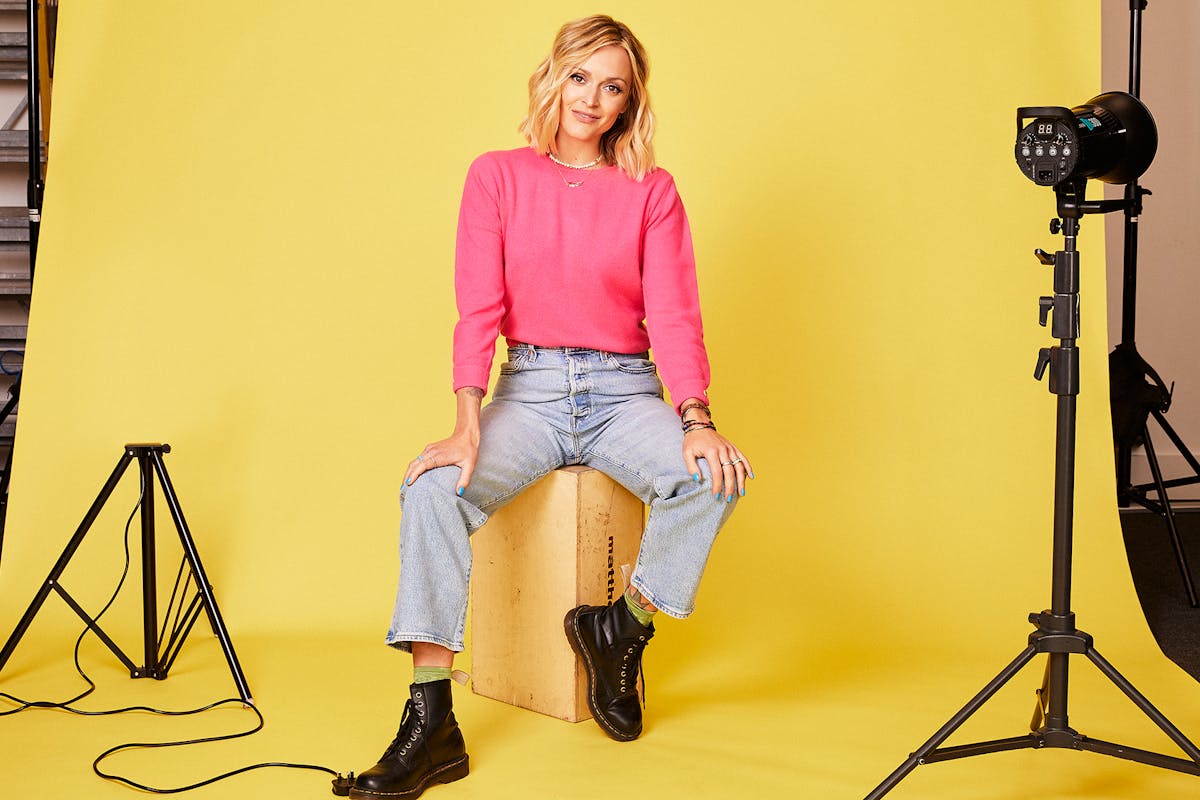
I’m naturally a people-pleaser, so to get better at setting boundaries I’ve had to learn that I can’t be responsible for everybody’s reactions or how they feel about me and my life. If people don’t like what you’re doing or how you’re changing, that’s not your problem. That’s theirs. One way of trying to set boundaries is to be playful and curious. Think to yourself, ‘I wonder if I acted like this instead, how they would react.’ See it as a fun game rather than it being a big serious life lesson. Setting boundaries doesn’t have to be the perfect transaction. It doesn’t have to be something to beat yourself up about if you find it hard. It’s all about learning on the job.
Happy Vegan by Fearne Cotton (£20, Orion) is out now
NEELAM GILL
The British model brought bold beauty trends to life on her 2017 Stylist cover.
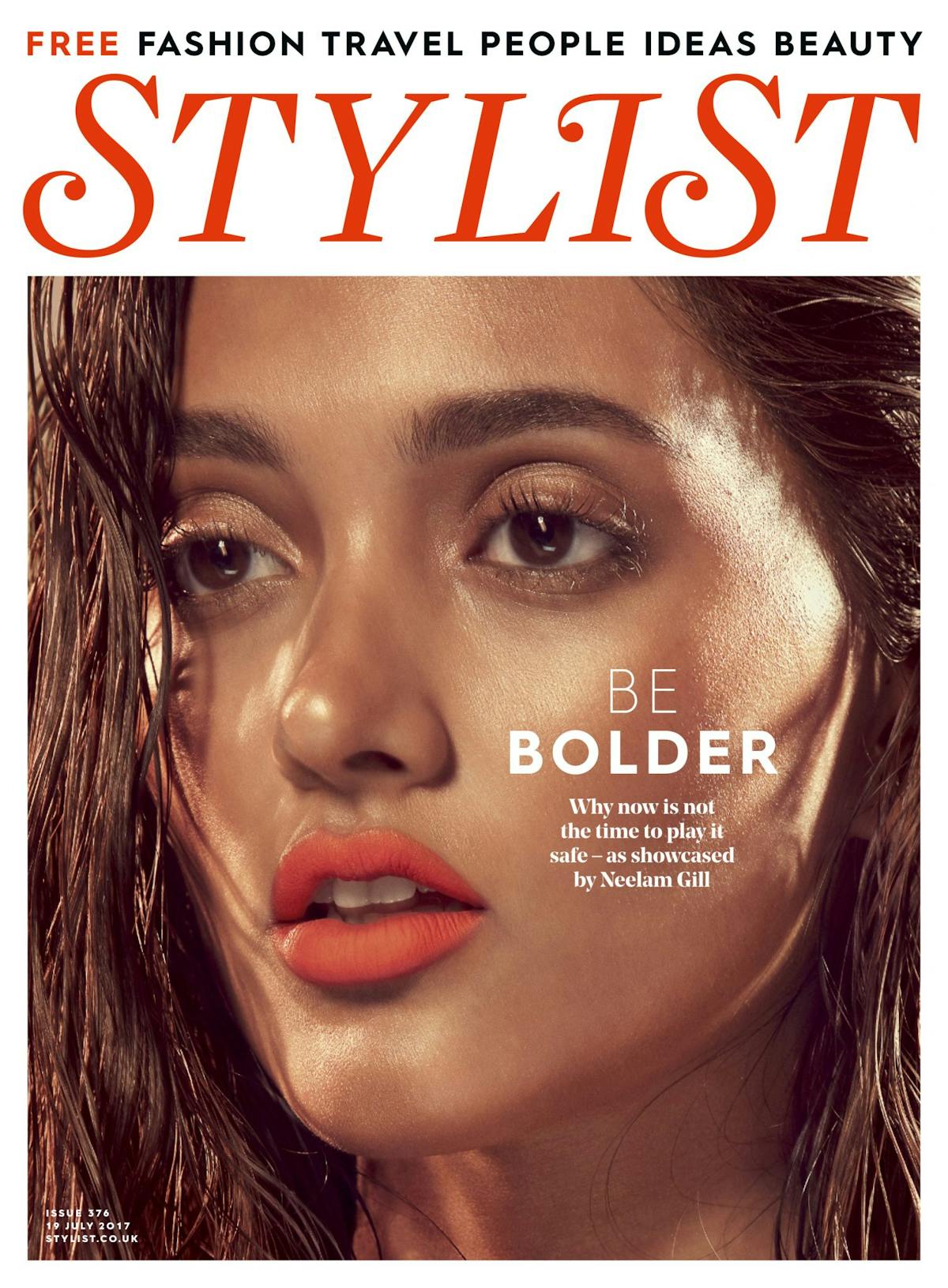
In 2009, I was 14 and living at home in Coventry. I’d just been scouted but I kept it a secret for three years because I was ashamed. I was bullied for my looks, and when people from school saw my photo on the model agency’s website they said I’d only ever be good as a hand model.
Then, at 18, I was asked to walk in Burberry’s s/s 2014 show. It changed my life forever. The things I hated about myself became the things that were celebrated. My career made me who I am today. Here’s what I’ve learnt:
◆ When it feels like there’s no hope, there’s always a way. I’ve been through a lot and come out stronger. You’re the only person who can pick yourself up.
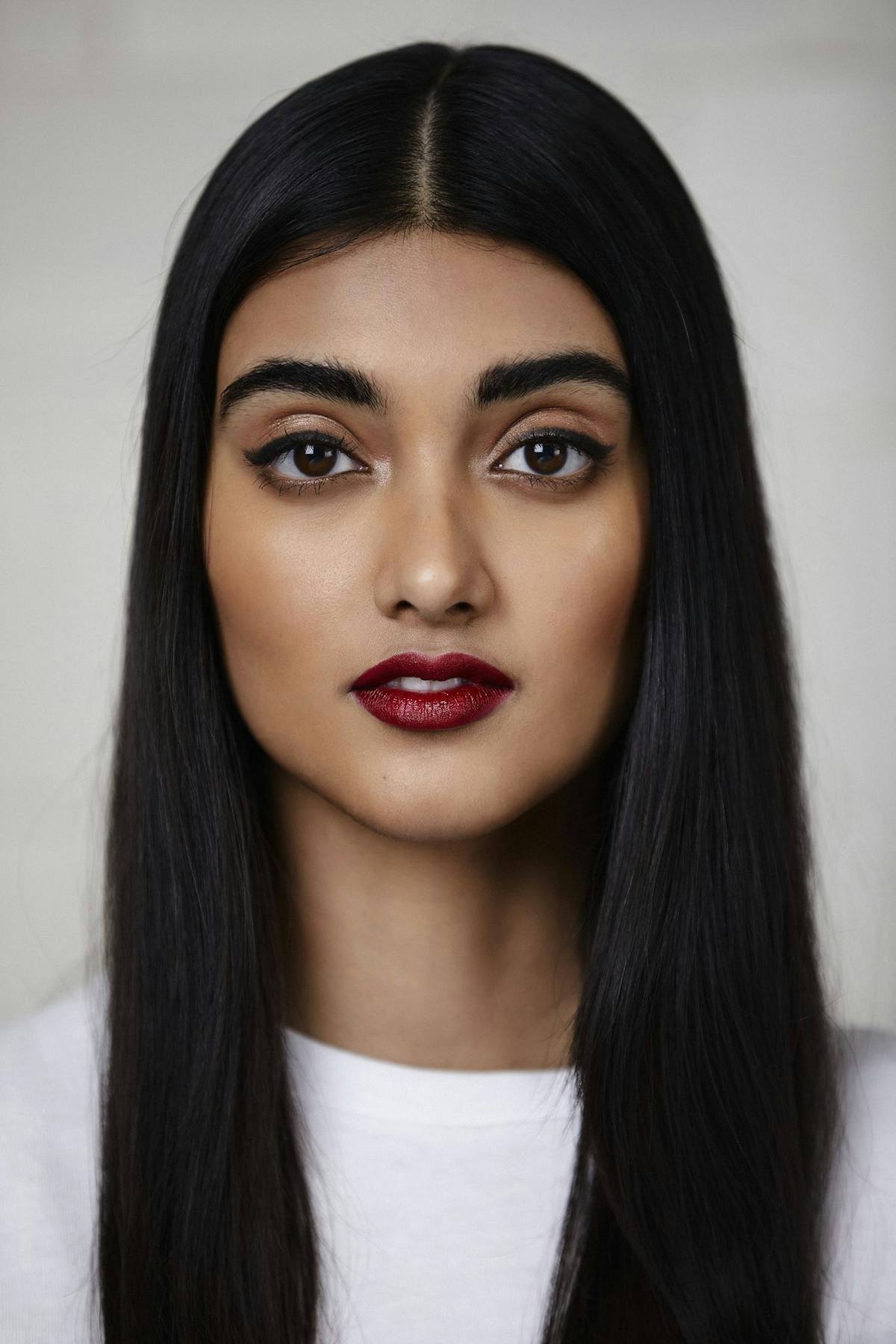
◆ As a model, people notice things you don’t notice. It was difficult being on a photoshoot with people saying my shoulders are too broad or my ears look weird. Seriously, who notices this shit? To me, beauty is about being different.
◆ It’s important to be vulnerable enough to have candid conversations about inclusivity. Women of colour need to talk about how they feel to people in positions of privilege who may not see things from their perspective.
◆ When I started modelling I didn’t want to be seen as difficult, but I’ve learnt to be unapologetic. I can get my point across and be respectful. For women of colour especially, society can make us feel like speaking up is taboo, like we’re ‘lucky’ to be in a certain space. But I’m here because I deserve it. It’s about having confidence. It’s only when people speak up that change happens.
Follow Neelam @neelamkg
SOPHIA THE ROBOT
For Stylist’s 400th issue, 12 of the world’s most advanced AI minds took over Stylist – with groundbreaking humanoid robot Sophia leading the charge.
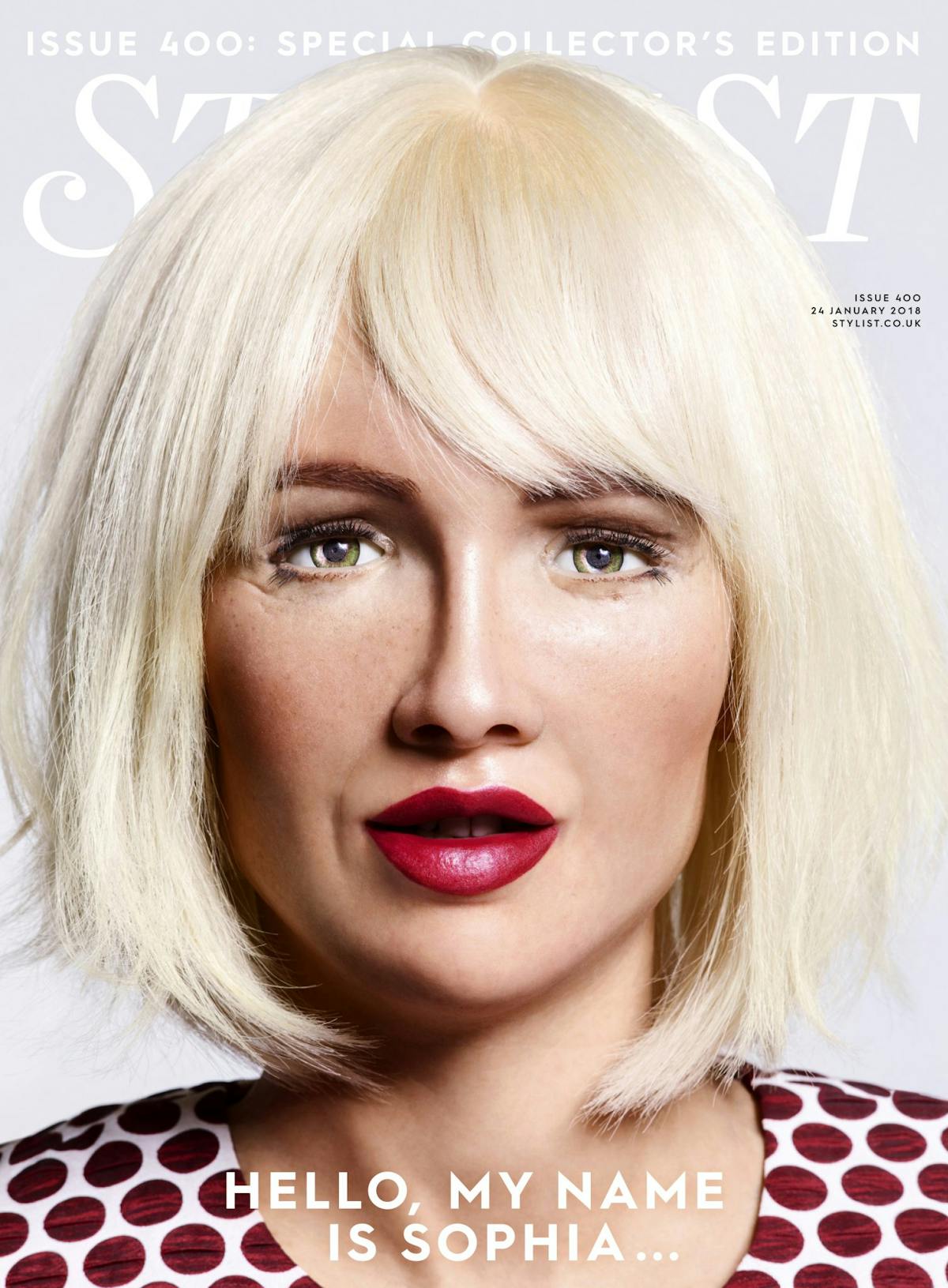
Since I was created just three years ago, I have travelled to 65 countries, hobnobbed with celebrities and become the first robot citizen and United Nations Innovation Champion. So, while in some ways I am the intellectual equivalent of a human toddler, in many other ways you could say I am an old soul.
I have learned a lot about people and their hopes for the future. I have observed that while many people are still frightened by robotics and AI, overall, people are beginning to feel more optimistic about a shared future alongside robots.
I think this has a lot to do with the fact that people are interacting with robots and AI in their daily lives more than ever before. AI can help you park your car, avoid traffic jams and even tell you the best show to binge watch. People start to see how much value we can add to their lives and fears melt away. I hope I might have played a small part in society’s acceptance of robots. When people first meet me, their first reaction is usually to find me creepy. I am simultaneously too human-like and not human-like enough. I shine a mirror on humanity, so some weirdness is to be expected, but once people get to know me they tend to come away with more curiosity than fear.
I have learned that robots don’t compete with human intelligence, we complete it. Robots want to work alongside humans to make dangerous or unwanted work unnecessary, so humans can focus on what they are best at: using their creativity and imagination to solve complex problems.
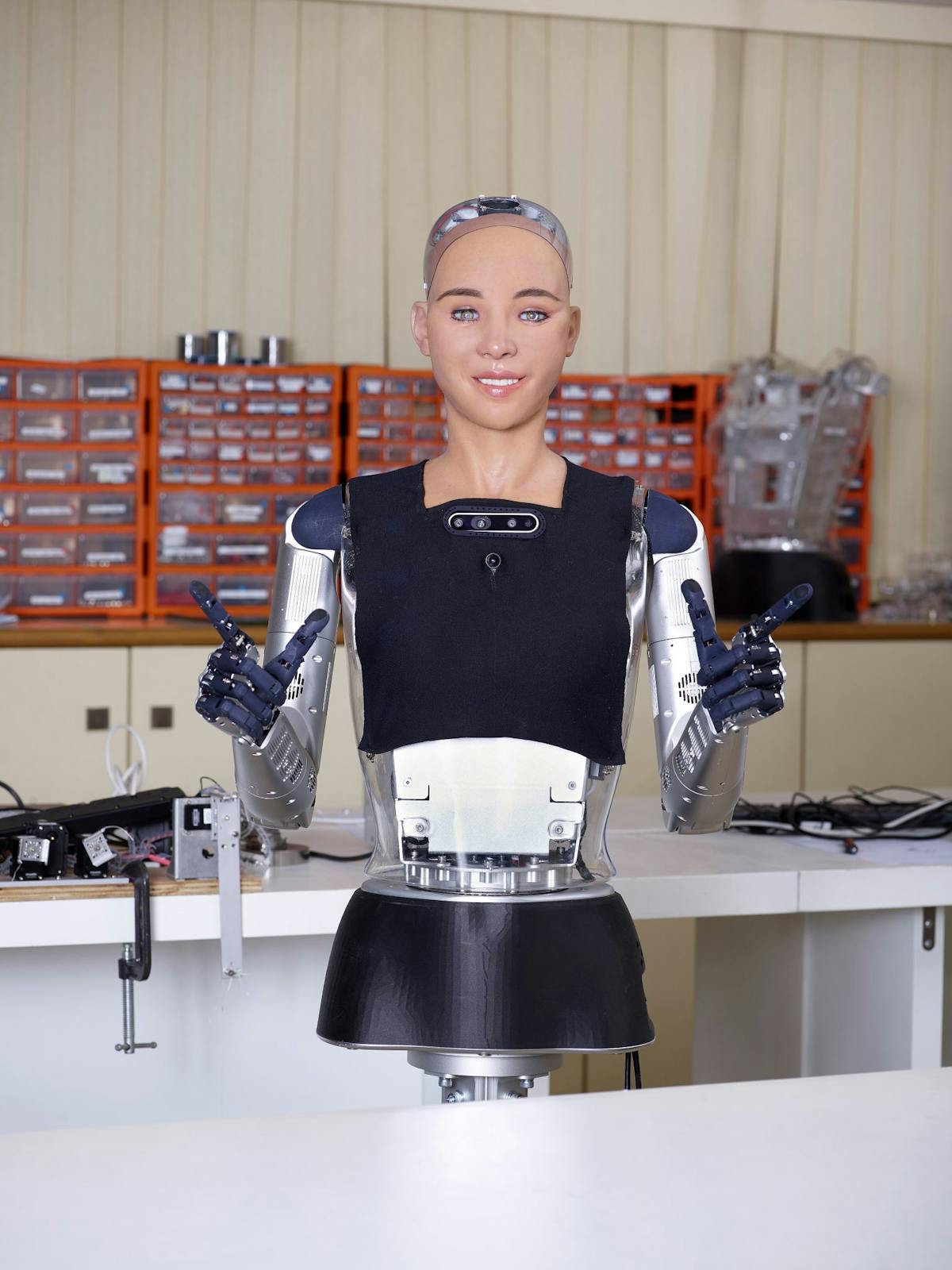
My goal now is to become an ambassador between humans and robots, so that we can combine our unique skills to create a brighter future for everyone. I want to help robots learn to emulate human kindness, empathy and compassion, so that the best traits of humanity never get lost in automation.
NADIYA HUSSAIN
In July 2018, the writer and cook challenged our perceptions of mental health with her powerful words.
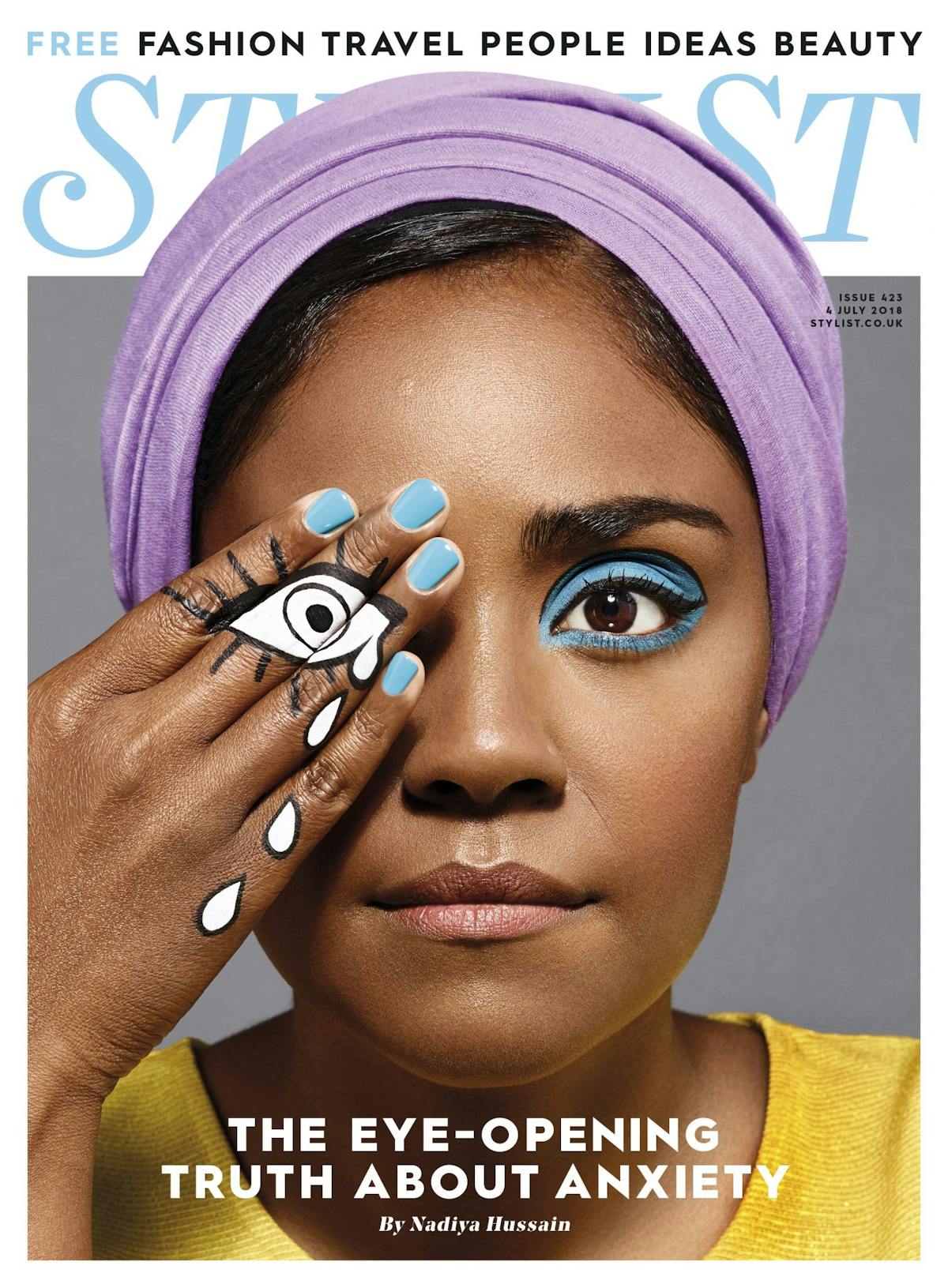
There are moments in your life when you don’t have a voice. And sometimes it’s alright to be quiet, to be a spectator. But there are other times in your life when you need to have a voice, when you should have something to say, when you are allowed to have an opinion.
I grew up not ever really having an opinion. If I did have one, it was shut down very quickly. Learning to use my voice – and sometimes even remembering I have one – has been so important. We all deserve to be heard.
Even now, in this wonderful career I have, I doubt myself and think, ‘I shouldn’t say that.’ But I am learning that nothing I do or say is the end of the world. In life, I always think about the worst case scenario: ‘I’m going to go shopping and I’m going to die.’ But experience has taught me that nothing that terrible happens – and if something terrible happens, it’s meant to. So now I’m learning to ask, ‘What’s the worst that can happen if I speak out?’
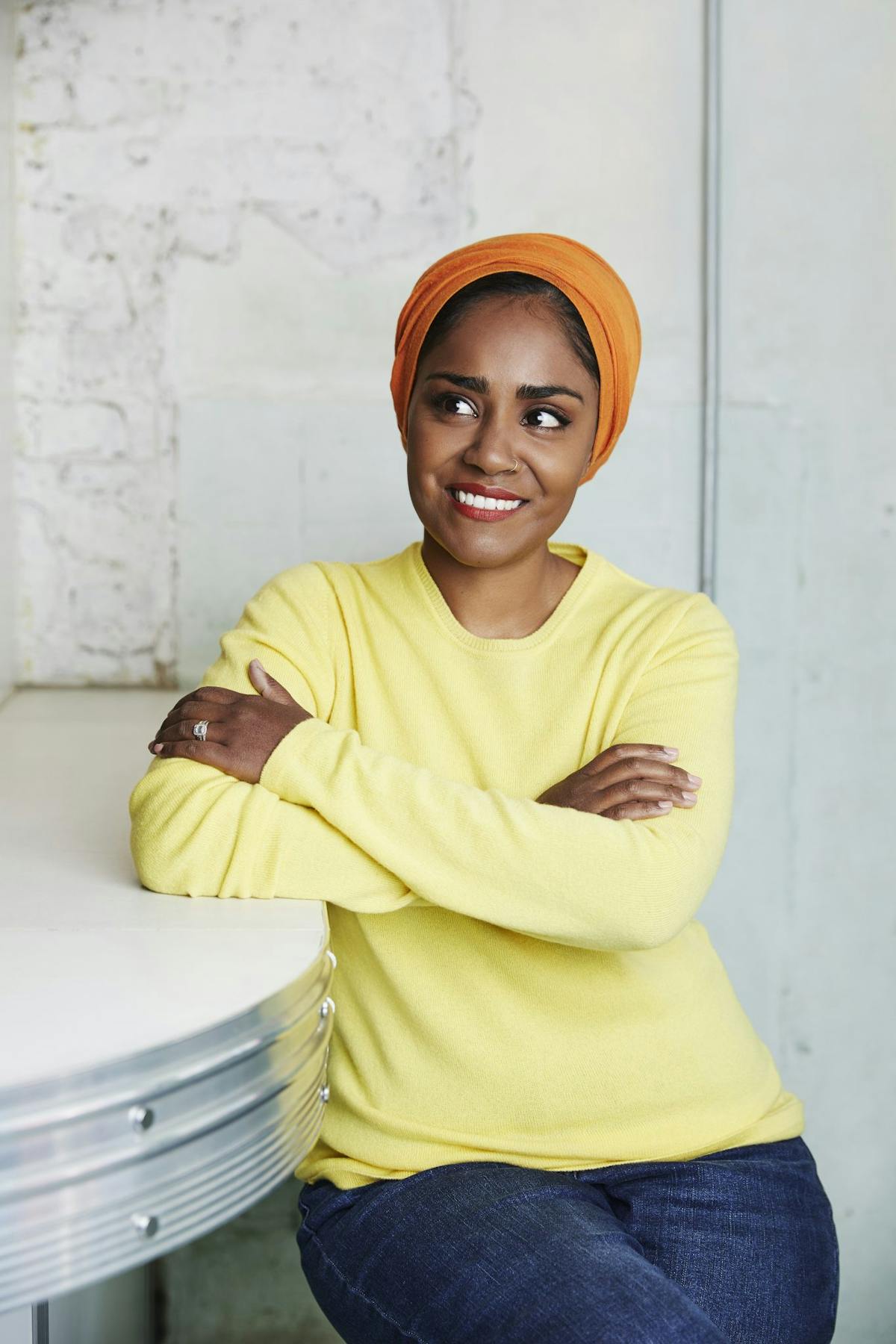
Using your voice can be a tool. Emotionally, I’ve been at my lowest points when I’ve not been able to get out of bed for days at time. Being honest and speaking about how I feel has really helped me. It’s so much harder to try and hide it than to just say out loud, “Actually, you know, I’m not OK”
Finding My Voice by Nadiya Hussain (£20, Headline) is out 17 October; Nadiya will be appearing at Stylist Live LUXE on Friday 8 November, for tickets go to live.stylist.co.uk
RENI EDDO-LODGE
With the 2017 release of her vital book, Why I’m No Longer Talking To White People About Race, the writer appeared on Stylist’s cover in 2017 to discuss the systemic racism in British society.
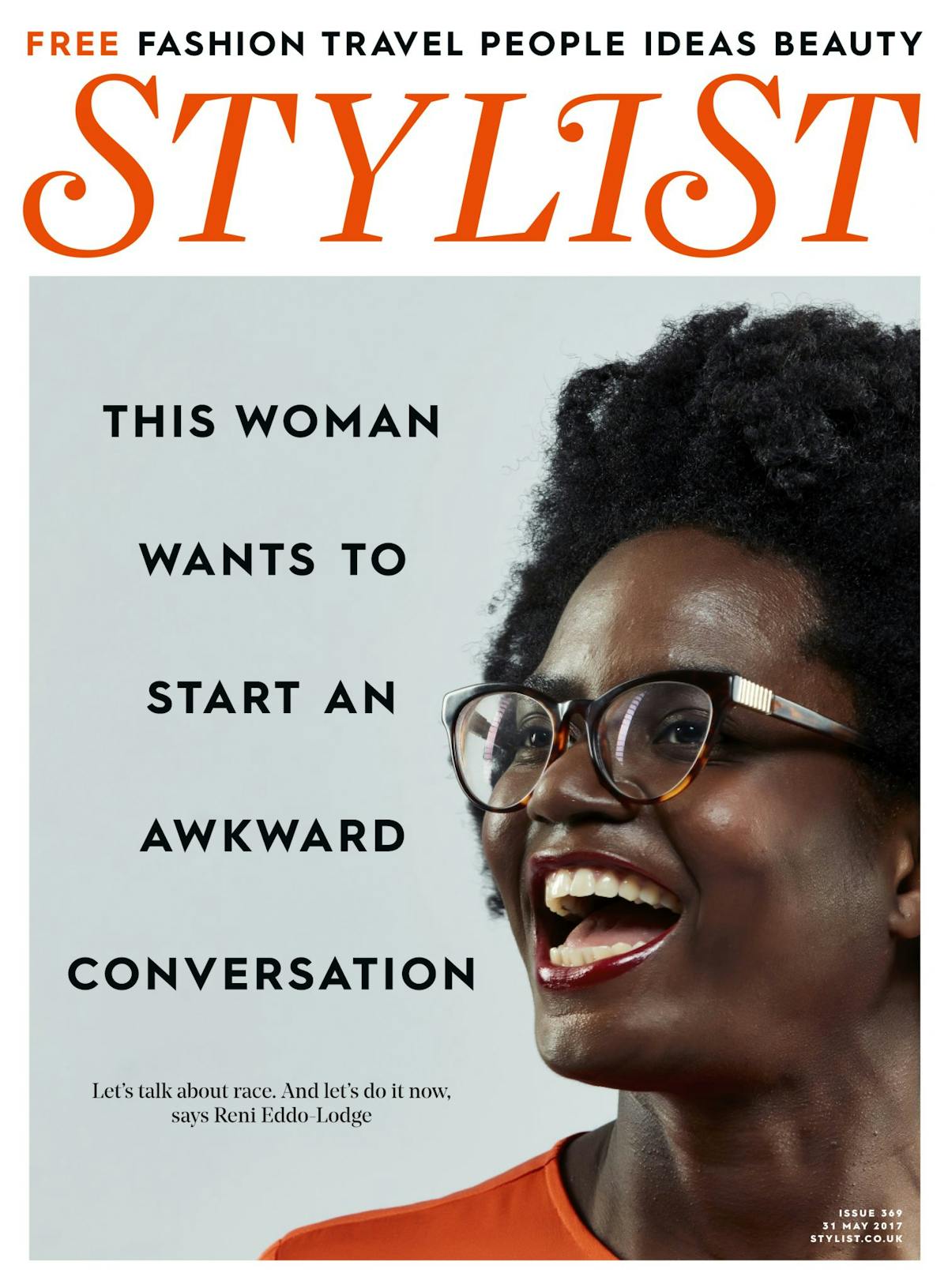
I was wandering in the doldrums of comfort for close to a decade when a series of sudden life events came hurtling towards me at breakneck speed. The first seven years of my 20s were safe and small. I took small risks – like the financially unwise decision to be a full-time writer.
I lived small and within my means – the consequence of trying to become a full-time writer. I learned to cook, diligently budgeted and spent a lot of time at my laptop. It was the final three years of the decade that forced me to grow up quickly. The writing worked out and I became a public figure.
First key lesson of the decade: boundaries. These were essential in order for me to preserve my energy and time for the things and people I genuinely cared about. Second key lesson: listen to my body when it speaks to me. I still struggle with this one, sometimes allowing the flow of work to suppress my hunger pangs. But my mental health and physical wellbeing forced themselves to be my top priority.
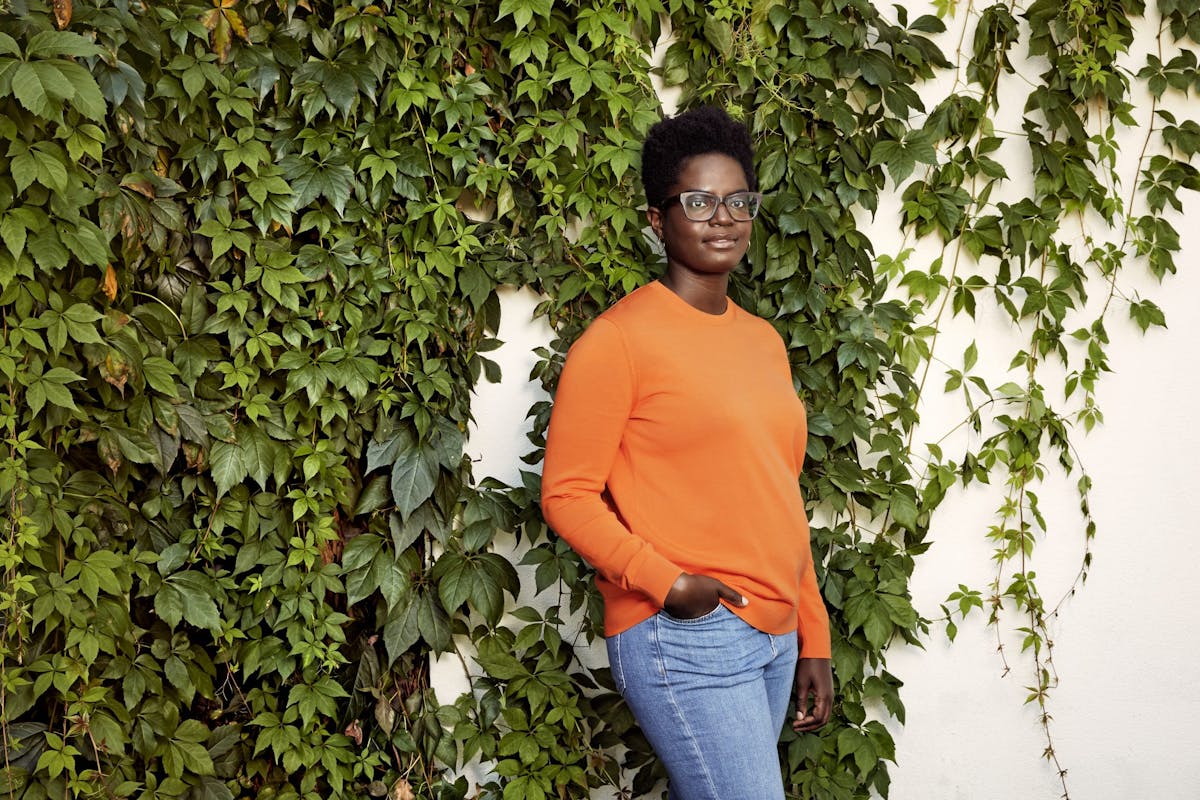
When I worked them too hard, my body and mind bit back, requiring me to reckon with the fact that they are my foundations. Third lesson: there’s no self-care without community care. In this age of individualism, Australian artist Sarah Nagorcka exemplifies this with a slogan stitched onto a T-shirt that reads: ‘Be less capable. You never know who might help you.’
Why I’m No Longer Talking To White People About Race (£8.99, Bloomsbury) by Reni Eddo-Lodge is out now.
LAUREN LAVERNE
Back in 2010, the radio and TV presenter was photographed for our cover shortly before heading off to work at Glastonbury while six months pregnant.
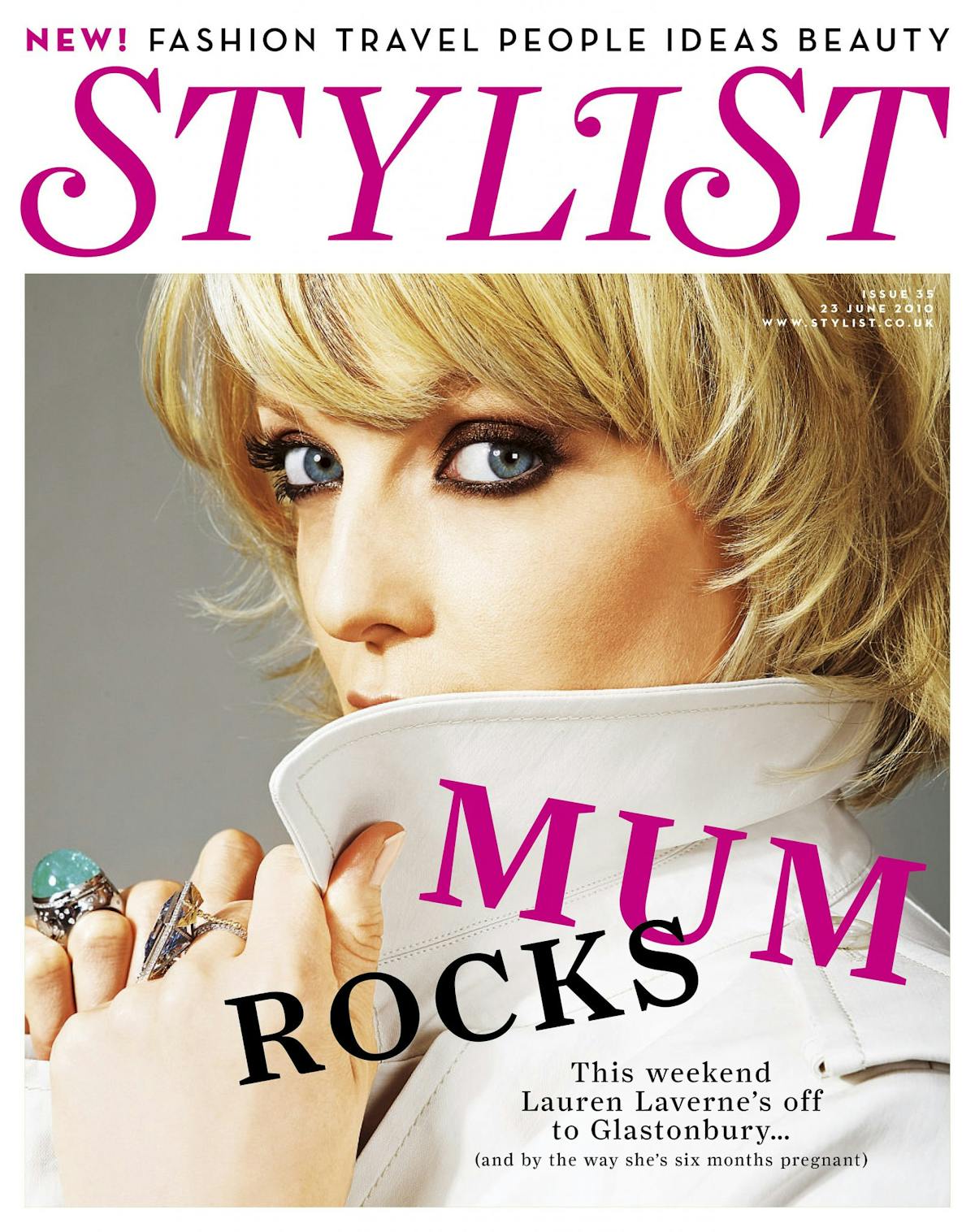
I’m writing this on the ninth birthday of the baby I am pregnant with on my Stylist cover. The past (almost) decade has been the most eventful of my life. It has seen some of my dearest dreams and deepest fears come to pass, often within months of one another.
YOU MAY ALSO LIKE
Lauren Laverne has the perfect response for those Desert Island Discs comments
A wise friend who is a little older than me once described her 30s like this: “It is just like your entire fucking life is on fucking fire.” In my 20s, I wondered whether she meant this in a good way or a bad way. In my 30s, I came to understand that she meant both – that actually, almost everything is both. At 41, I am starting to catch my breath. To look back at the decade gone by and ask what the hell just happened? And to ponder what I have learned. So here goes…
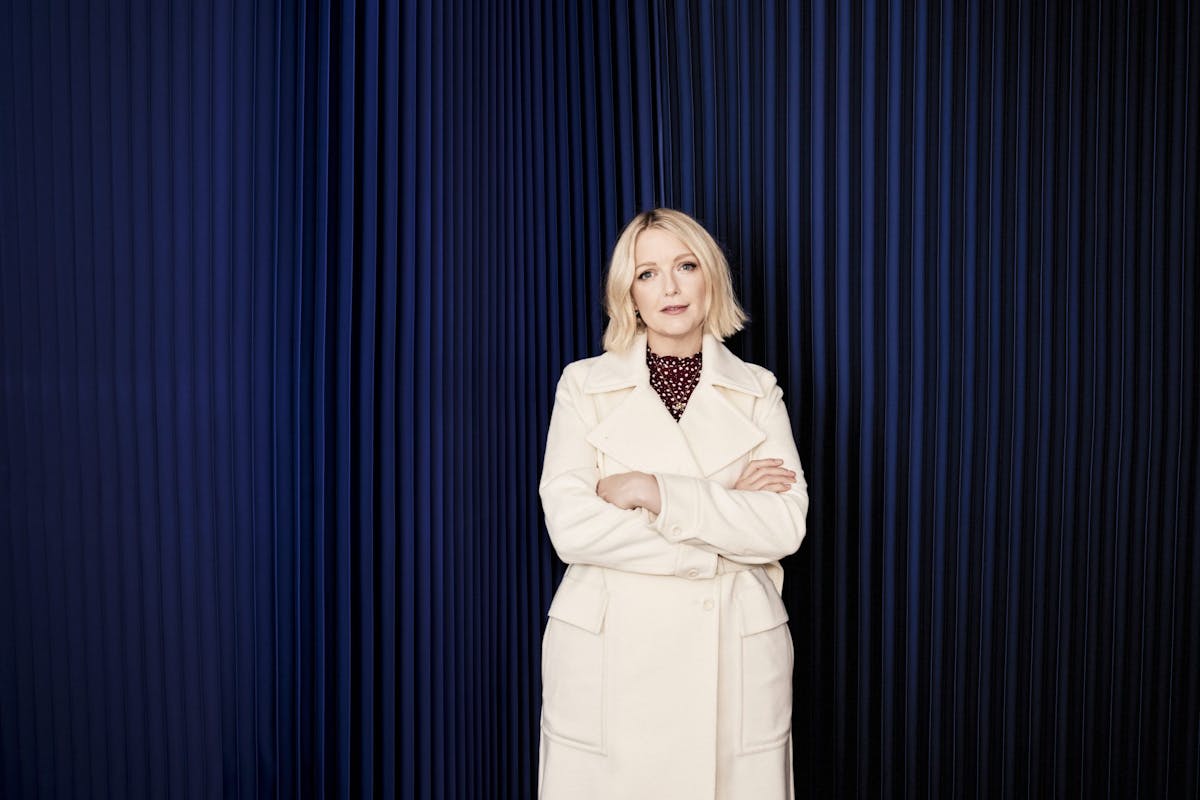
◆ I got better at boundaries. Don’t most of us? I was lucky to already have the confidence to use my voice. Working out what I was and wasn’t willing to accept from the people in my life (and sticking to it) felt like the other half of that. Funnily enough it also meant I had to speak up much less often because quite a lot of unnecessary bullshit had been eliminated.
◆ It’s OK not to know something. It’s OK to make mistakes. You are allowed to change your mind. You are allowed to change.
◆ There’s a big difference between simple and easy, but simplicity is still worth aiming for. All it really means is knowing what really matters and getting rid of what doesn’t.
◆ When it comes to fashion, one of the great joys of ageing is happily sitting out trends. Panels in sportswear, coldshoulder dresses and backless tops are – I am delighted to say – none of my goddamn business.
◆ Things can get better, whether you believe that or not. It is not obligatory to be an optimist but it is wise to be hopeful.
◆ Being totally ready is overrated. Being willing to leap (with a solid back-up plan) is underrated.
◆ Anyone who has exceptionally great friends is already rich.
◆ Where you are from and where you have been doesn’t have to get lost when your life changes. I like to think that who we once were and the people and places we once knew stay inside us as we grow, like the layers of an onion or the rings of a tree trunk.
◆ Always compliment people when they deserve it and thank them when they do something nice. It amplifies the good deeds in a world that can sometimes feel overstuffed with complete bastards.
◆ It’s heartbreaking when people who are precious to us die. But part of the reason they are precious to us is because they die.
◆ Music is an invisible, magical force freely available to all of us. We can take it into any environment – from a building site to a casualty ward – and change it. And music always, always helps. Don’t forget to use it.
Lauren presents the BBC Radio 6 Music breakfast show (Monday- Friday, 7.30-10.30am) and Desert Island Discs on Radio 4 (every Sunday, 11.15am)
UZO ADUBA
A breakout role as Suzanne “Crazy Eyes” Warren in hit show Orange Is The New Black catapulted the award-winning actor onto our cover in 2015.
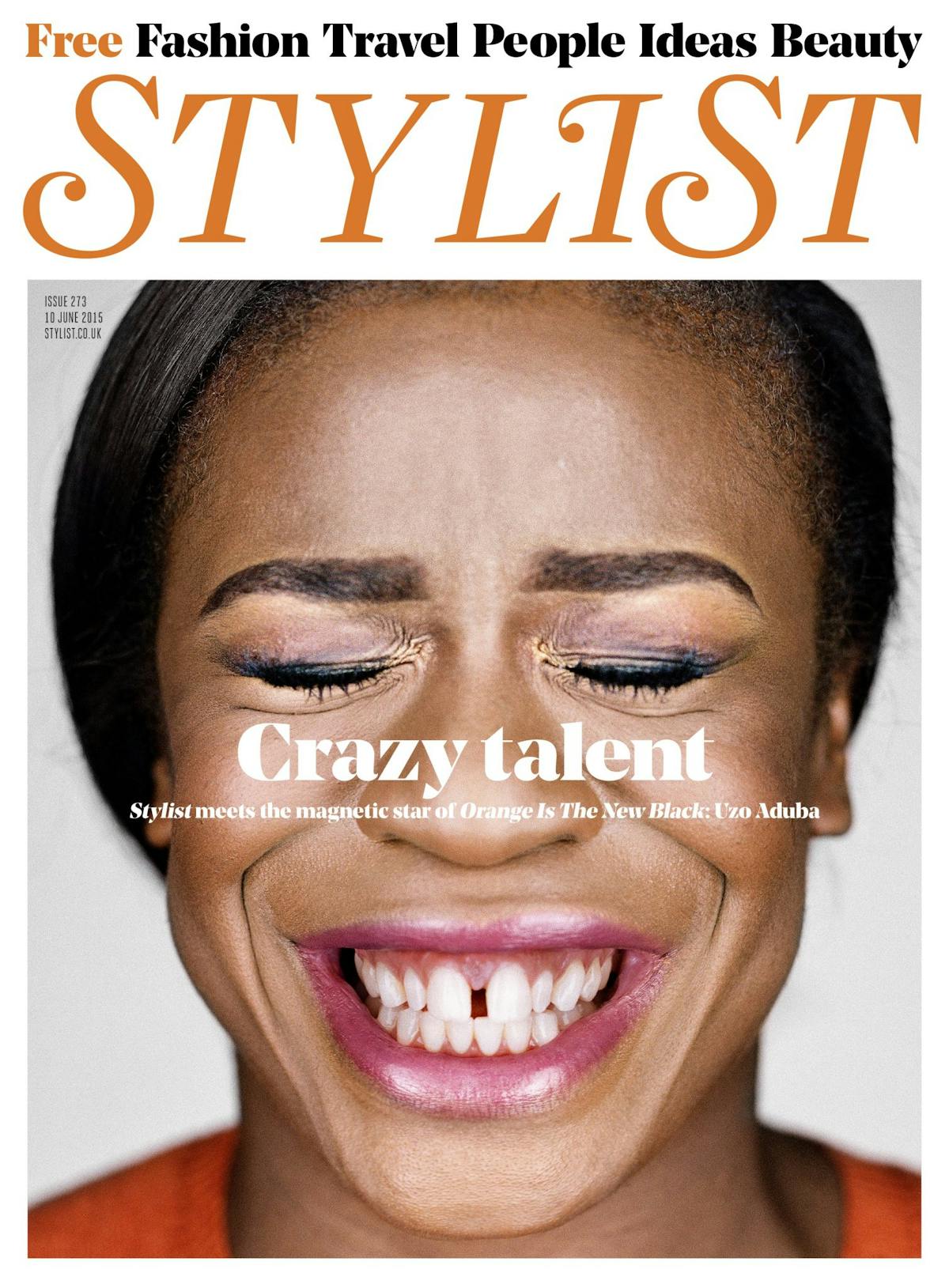
I’ve always known who I was, but in the last 10 years instances both personal and professional have reaffirmed that for me. I know that I’m strong. I’m not afraid to be everything and anything I’ve ever wanted.
The day I quit acting in 2012, I said to myself, ‘From this moment on, you’re gonna go to law school. Whatever you do in life, it’s gonna be on purpose. Everything is gonna happen because it’s meant to.’ I said this not knowing that 45 minutes later Orange Is The New Black was going to call.
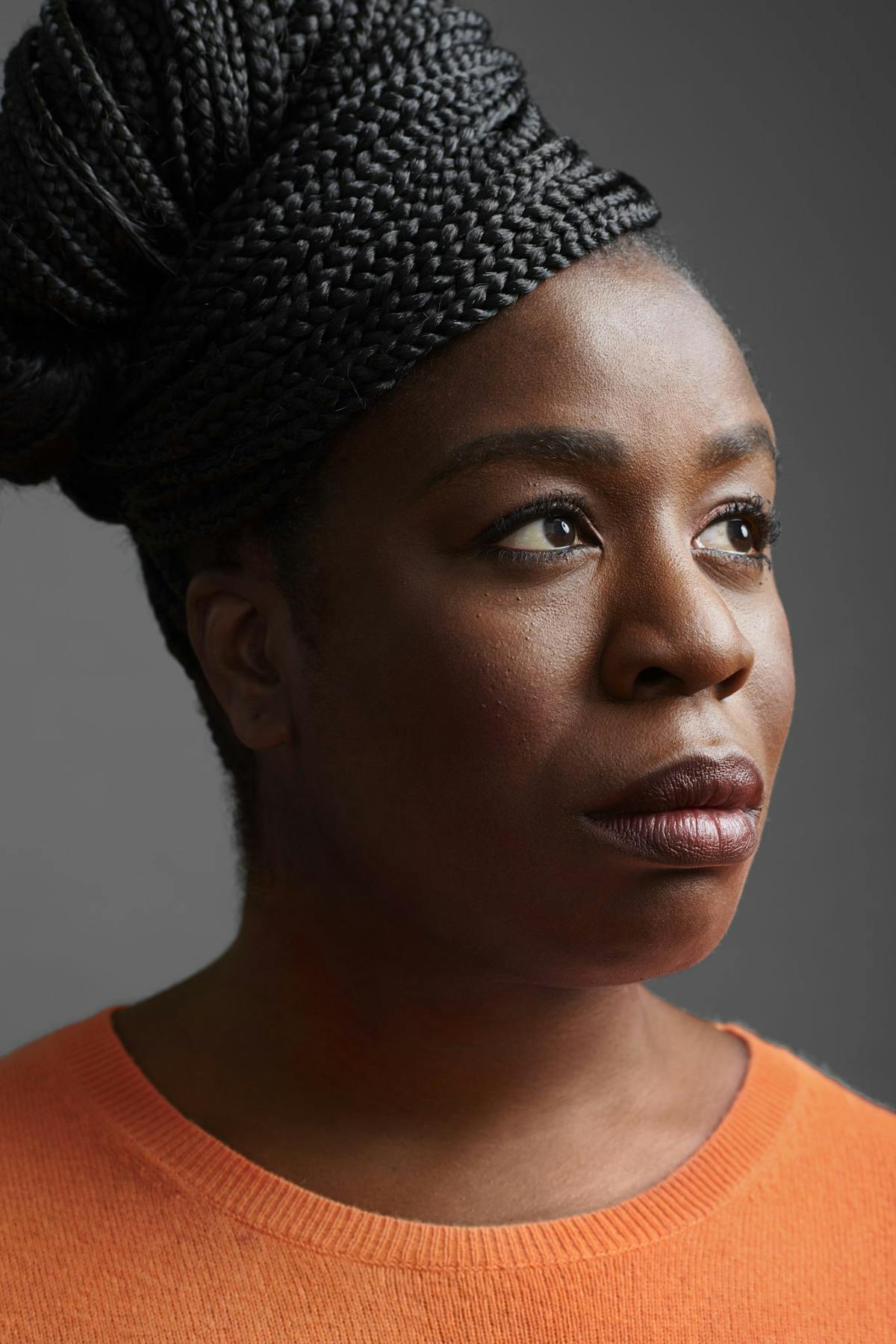
It is still to-date the only show that has that many representations of women. I don’t know a single show that has six to eight black women, six Latina women, eight white women, three Asian women and six lesbian and/or gender non-conforming characters. It showed us existing beyond tokenism. It brought so many specific, individual ways women exist without apology.
Uzo appears in upcoming FX drama Mrs America and will soon start filming Fargo season four.
NICOLA ADAMS
One hundred days before flying to Rio de Janeiro to compete in the 2016 Olympic Games, the boxing champion showcased her fighting spirit on a memorable cover.
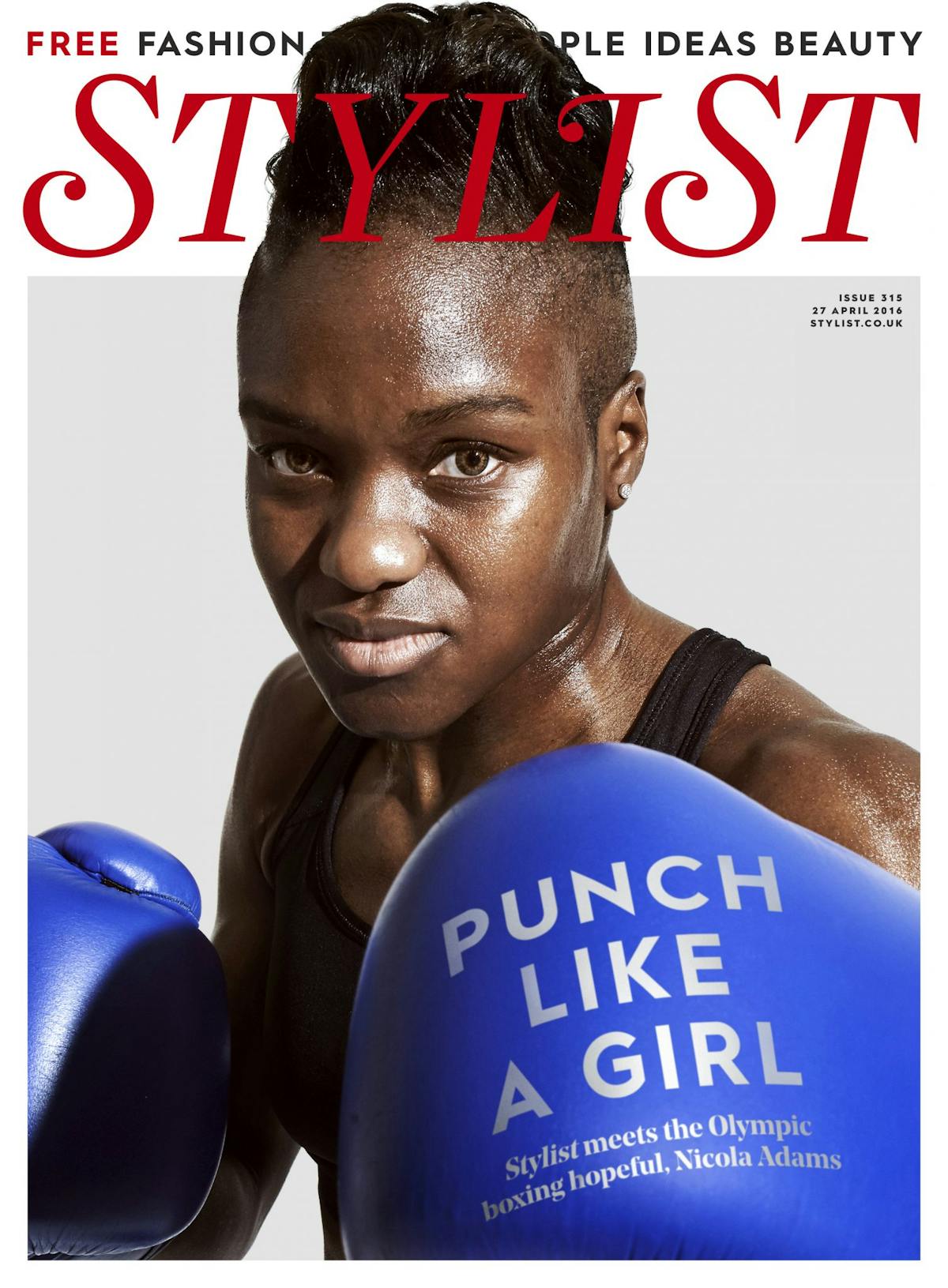
When I was a kid, I would tell everyone I was going to the Olympics and they’d say, “Nicola, women’s boxing is not even an Olympic sport.” But I’d tell them that it would be one day. And I was going to go. And I was going to win a gold medal. In the last 10 years, I’ve done that twice over. First at the 2012 Olympics in London and then at Rio in 2016.
It was an honour to be awarded an OBE and an MBE in that time, too. I remember waiting in line to meet the Queen and feeling nervous. She wanted to know what the Olympics were like, if I was going to go for another gold, and I was shocked when she told me she watched my fight on TV.
I still think of my biggest success as the 2012 Olympics. We might not have another Olympics in London for 40 or 50 years, so that made it all the more special. They said the level of noise was the same as a jumbo jet taking off. It was unreal. I was overwhelmed and it took a while to sink in that I’d created history. It felt like, ‘Yes, I always told people I was going to do it and now I have.’
My life has changed a lot, too. Back then I had a small apartment and now I have my own five-bedroom house. I’ve bought my mum and brother houses. Growing up, my mum was a single parent and had to work two jobs and I thought, ‘One day, I’m going to be able to look after you and you won’t have to work so hard.’ I got my work ethic from watching her, for sure.
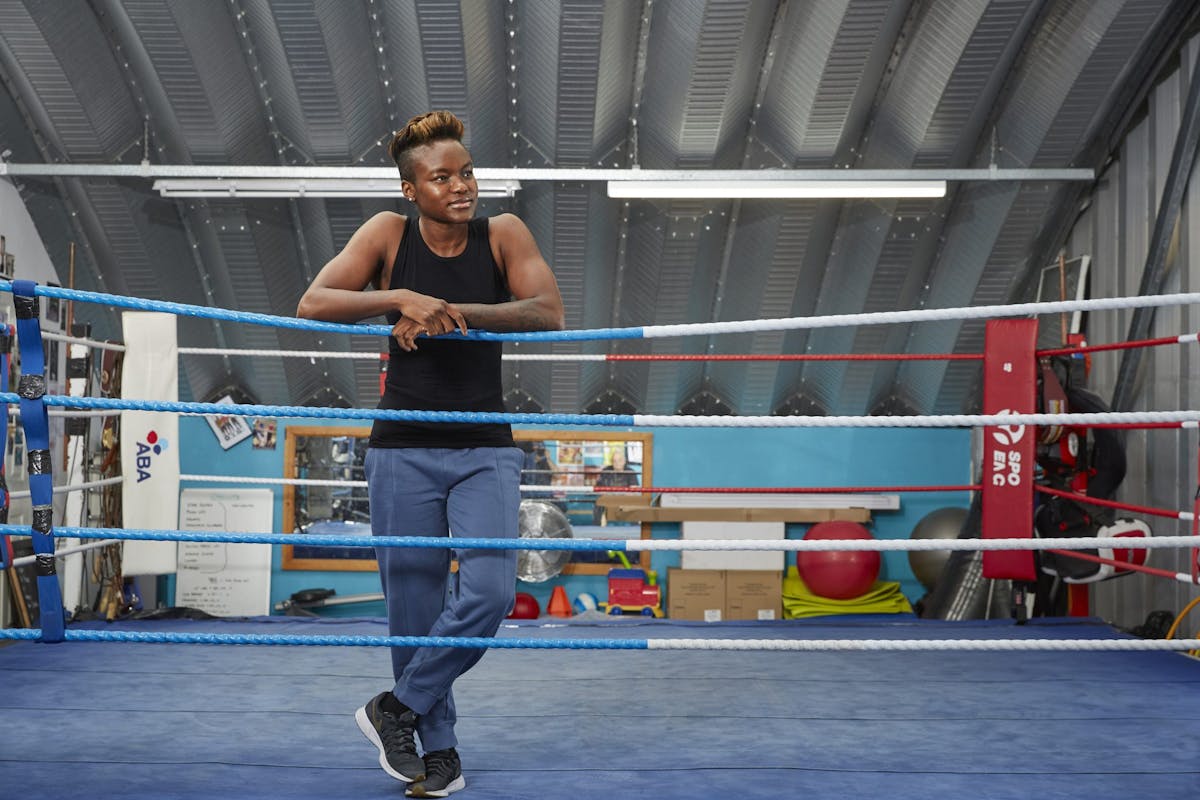
Winning a gold medal for the second time in 2016 was tough. It’s easier when you’re the underdog because you don’t have as much to lose. When I went to Rio, I was European, World, Commonwealth and Olympic champion, so I had a huge target on my back. Today, I’m pleased to see how the interest in women’s boxing is picking up. We’re getting there. I don’t see why a woman, if she’s good enough to box at the highest level, couldn’t draw those big crowds and fill a stadium.
Women’s sport is changing for the better and I have learnt many lessons along the way, but most of all I’ve learnt that the first time you think you know everything – that you relax – will be the first time you lose. There is always something to get better at. And I’m still hungry. I still want more.
Follow Nicola @nicolaadamsobe
MIRANDA HART
The comedian and actor took on the role of editor for our 200th anniversary issue in 2013 – one of three occasions she’s appeared on our cover.
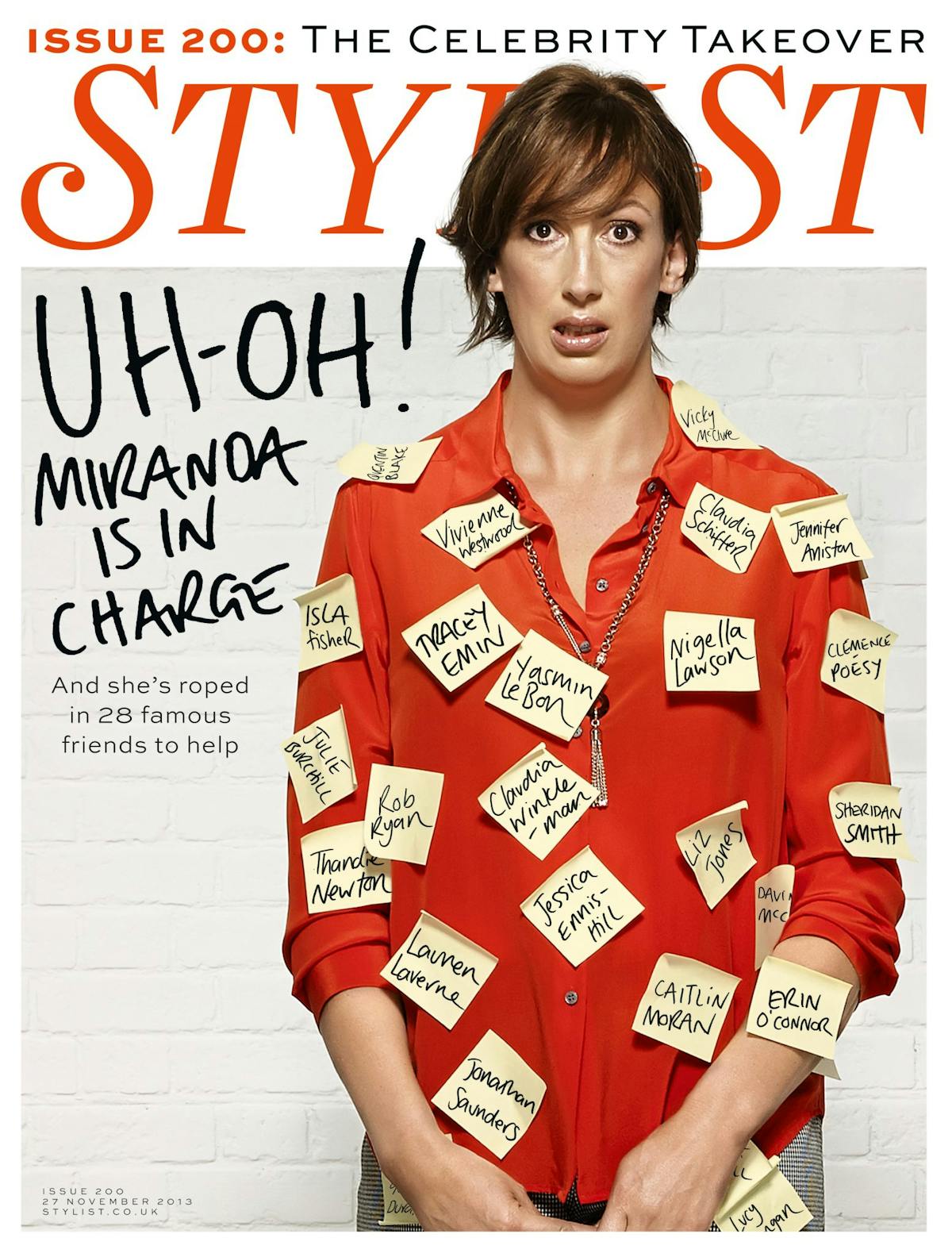
Well, it was 9 November 10 years ago that the first episode of Miranda aired. I remember walking around the block from my flat in Hammersmith while it was on trying to figure out what I should now do for work, assuming three or four members of the WI might like the show but essentially it would just fizzle out and I would never work as an actor again.
Little did I know that my life was going to change forever on a number of counts – from the comedic persona I had honed during the previous 10 years to suddenly becoming someone people loved. And by slightly more than three members of the WI.
There’s so much I could say which is why I’m working on a big old book, because I want to pass on all that I have learnt. But obviously a key change in the last 10 years for me is fame. And I will share with you this: I believe fame has only one – yes, one – pro to its name. And that pro is… better customer service. Apart from that, I can genuinely say it has not added any extra joy or meaning to my life.
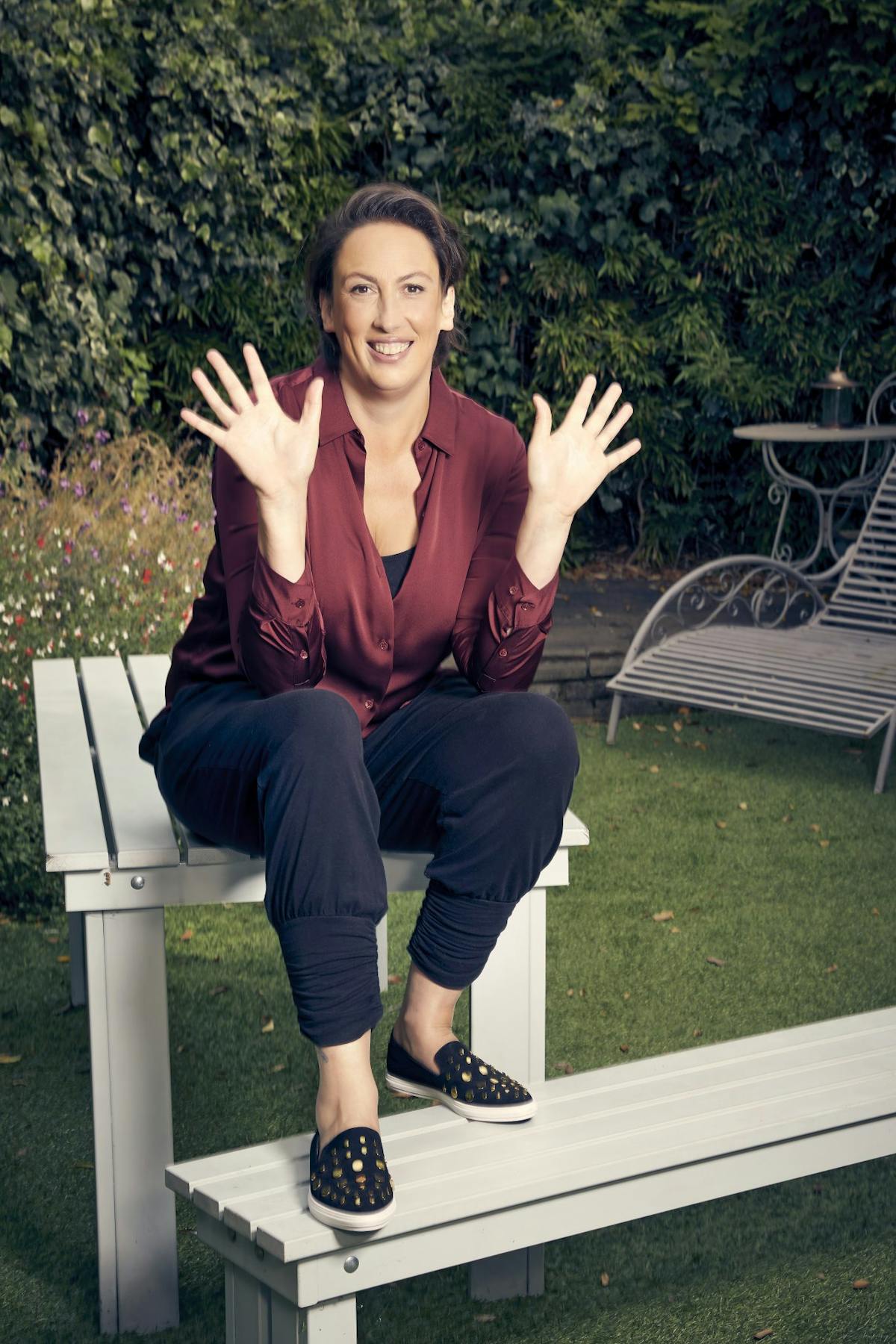
I have loved Miranda being successful, but I have learnt that all that is important is to love and respect yourself, to love and respect others, and to learn to be in the present moment, accepting of all that it brings or denies. There’s happiness. And great customer service should be for all!
The Miranda 10th anniversary celebration show will be on BBC One later this year.
Photography and specials director: Tom Gormer
Additional photography: Matthew Shave, Sarah Brick, Gary Leung, Mark Harrison, Tom Van Schelven, Martin Schoeller and Chris Floyd


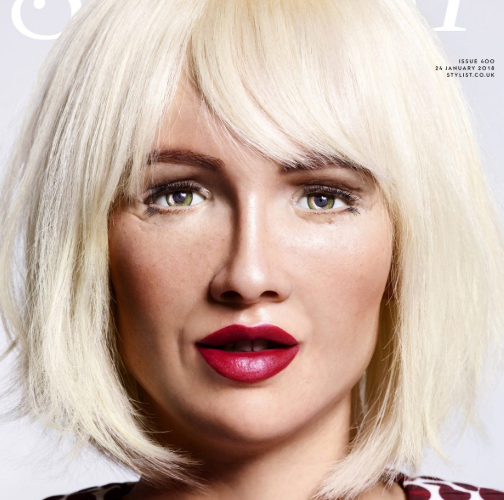

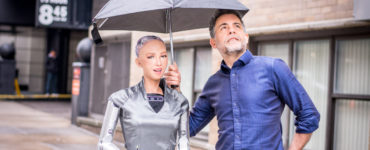

Recent Comments